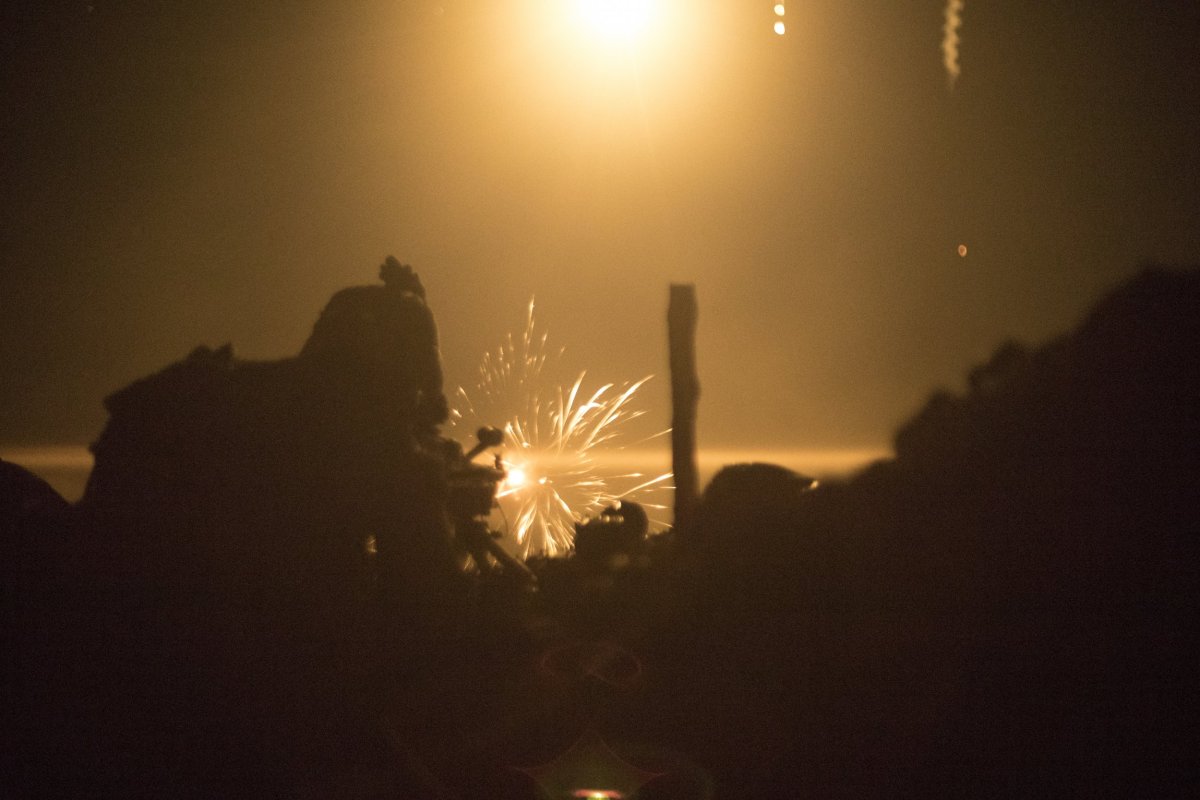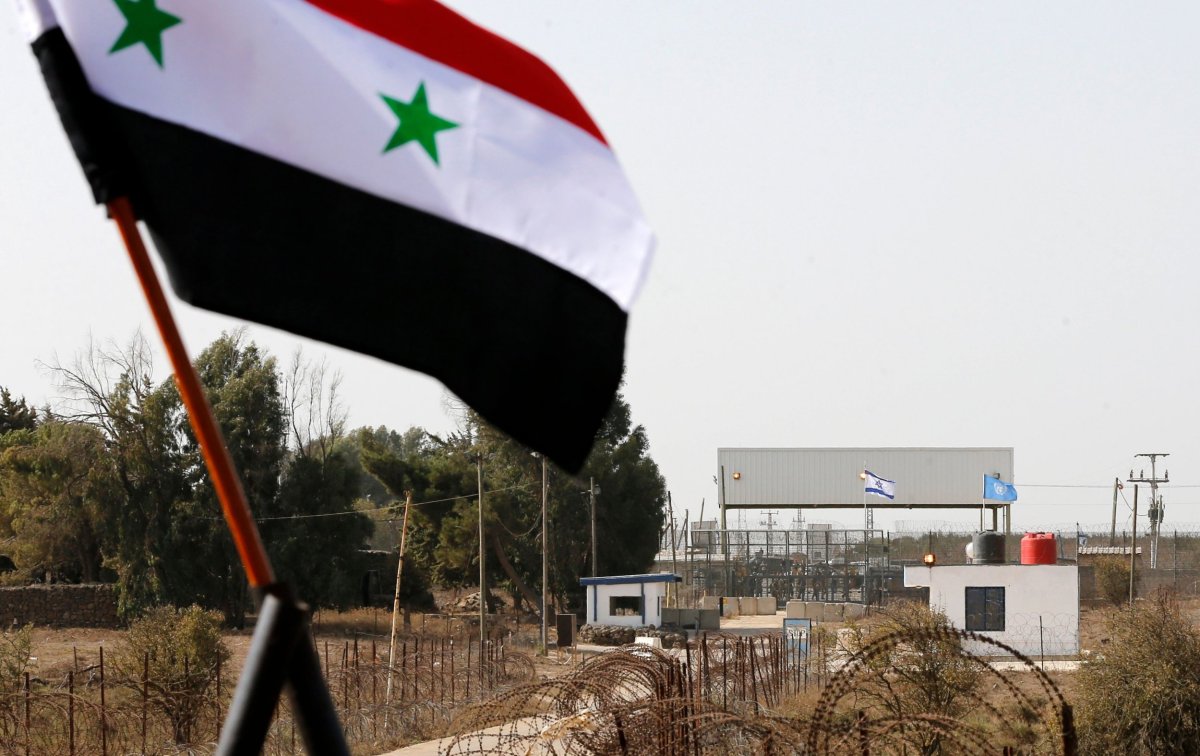The United States has warned of a heightened risk of countries attacking one another over the war in Syria, where recent international incidents have raised new concerns that a wider conflict could be sparked.
U.S. Special Representative for Syrian Engagement James Jeffrey recounted to reporters on Wednesday "five examples of state-on-state violence" over the past six weeks in Syria. These included recent tensions between the various armed forces present in the country, as well as recent attacks such as the accidental shootdown of a Russian military plane by allied Syrian defenses reacting to an Israeli air raid and an Iranian missile strike targeting militants just three miles from U.S. troops.
"Many of you have covered the Middle East for many years, and you know that you get all of the time sub-state actors and failed states and ungoverned territories and counterterrorism and civil wars and insurgencies and that sort of thing, but you don't normally see this kind of state-on-state potential for conflict," Jeffrey said.
"And so I think everybody is concerned," he added.

While world powers intervened at the very onset of unrest in Syria—where the U.S. and its regional allies sponsored armed opposition to a government they accused of human rights abuses—the latest phase of the seven-year war has threatened to pit several of these participating nations directly against one another. At least three of the instances recounted by Jeffrey included the potential for direct U.S. military action.
Having largely abandoned its support for the Syrian opposition, the U.S. has teamed up with a largely Kurdish faction known as the Syrian Democratic Forces to battle the Islamic State militant group (ISIS) in recent years. This U.S.-backed campaign—along with a parallel pro-Syrian government campaign supported by Russia and Iran—managed to reduce the jihadis' presence to pockets of control in the country's south and east, two regions in which U.S. troops are stationed.
The Syrian government, however, only considers Russia and Iran to be legitimate partners and has called on the U.S. to leave. Early last month, Russia warned that the Syrian armed forces would carry out operations within a patch of southern Syria called Al-Tanf, which is currently occupied by U.S. forces and a remnant of Pentagon support for insurgents. The U.S. responded by holding a massive live-fire Marine Corps drill alongside the Mughawir al-Thawra rebel group.
In Syria's eastern Middle Euphrates River Valley, Iranian missile strikes targeted ISIS positions just three miles from U.S. soldiers and their local allies earlier this month. Iran's national security adviser warned two weeks ago that the attacks—which officially came in response to a deadly, ISIS-claimed attack on a military parade at home—was also a reply to warnings by his U.S. counterpart.
Outside the roughly quarter of the country held by the Syrian Democratic Forces and the border region of Al-Tanf, the Syrian government has regainedmuch of its territory in recent years. The final enclave of rebels and jihadis opposed to Assad's rule is the northwestern province of Idlib. As pro-Syrian government fighters amassed around the area, the U.S. threatened to intervene against an attack on Idlib and Russia sent warships to the Mediterranean Sea to stage war games, in what was widely seen as an effort to block potential Western military action.
The U.S. has struck Syrian government targets on two prior occasions, both times in response to allegations that Assad had ordered chemical weapons attacks. In response to apparent reports that Syria would use banned toxic gas in Idlib, Jeffrey said Wednesday that the U.S. "took a very, very strong position on the use of chemical weapons, which was almost a necessity for such an operation if they wanted to succeed, but we made it very clear that there would be very, very strong repercussions."

Russia has denied that its Syrian ally has used or planned to use chemical weapons and accused the West of trying to falsify a pretext for intervention. A Syrian attack on Idlib, however, would also threaten Turkish troops deployed to observation posts surrounding the province. Fearing a clash with local forces and their Russian and Iranian allies, Ankara reached an agreement last month with Moscow to establish a ceasefire, but a jihadi refusal to withdraw could threaten such a measure.
In the deadliest example of recent violence between nations in Syria, Israeli jets targeted alleged Iranian positions in the Syrian province of Latakia hours after the deal between Turkey and Russia was announced. Syria responded by targeting the hostile warplanes with anti-aircraft fire, but accidentally hit an allied Russian Il-20 surveillance plane, killing all 15 on board.
Both Russia and Syria blamed the incident on Israel, which held Iran responsible. Moscow, which maintains ties to both Iran and Israel, reacted by sending its Syrian ally updated S-300 missile systems better capable of thwarting airstrikes. The U.S. and Israel have reacted negatively to the deployment, seeing it as an obstacle to their shared goal of expelling Iran and the militias it supports from Syria.
Uncommon Knowledge
Newsweek is committed to challenging conventional wisdom and finding connections in the search for common ground.
Newsweek is committed to challenging conventional wisdom and finding connections in the search for common ground.
About the writer
Based in his hometown of Staten Island, New York City, Tom O'Connor is an award-winning Senior Writer of Foreign Policy ... Read more
To read how Newsweek uses AI as a newsroom tool, Click here.








